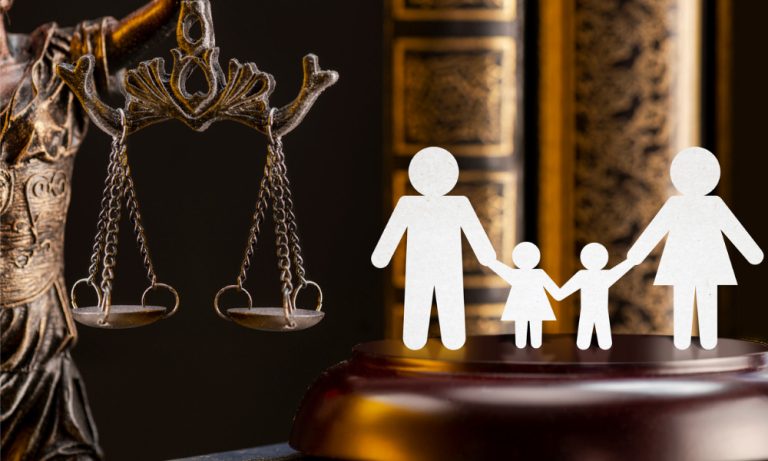
Child protection laws are in place to ensure the safety, well-being, and rights of children. These laws exist to prevent abuse, neglect, and exploitation, while also providing parents and guardians with a framework for responsible caregiving. Understanding child protection laws is crucial for every parent, as these regulations outline the rights of children and the obligations of caregivers. This article aims to break down the key aspects of child protection laws and offer practical insights for parents navigating this legal landscape.
The Importance of Child Protection Laws
Child protection laws are designed to shield children from physical, emotional, and psychological harm. These laws are based on the principle that children have the right to a safe, nurturing environment and that society has a responsibility to safeguard their welfare.
In most jurisdictions, child protection laws cover a broad range of issues, including:
- Child abuse and neglect: Physical, emotional, and sexual abuse are prohibited, and neglect of a child’s basic needs can result in legal consequences.
- Child labor: Regulations are in place to protect children from being exploited in the workforce.
- Custody and visitation rights: Courts often intervene to ensure the best interests of the child in custody disputes.
- Adoption and foster care: Legal frameworks ensure that children are placed in safe, supportive homes.
Why It’s Important:
Understanding child protection laws helps parents fulfill their responsibilities while also ensuring that their children’s rights are protected by law.

Key Aspects of Child Protection Laws
1. Child Abuse and Neglect Laws
Child abuse and neglect laws are central to child protection efforts. These laws define what constitutes abuse, including physical violence, emotional harm, sexual exploitation, and neglect. Neglect can involve failing to provide adequate food, clothing, shelter, medical care, or supervision.
Parents and guardians can face criminal charges if found guilty of abuse or neglect. In some cases, children may be removed from the home to ensure their safety. The legal system places a strong emphasis on the child’s welfare, with courts often stepping in when abuse is reported.
Why It’s Important:
Parents must understand that failing to meet their child’s basic needs or engaging in abusive behavior can result in serious legal consequences.
2. Mandatory Reporting
Many countries and states have mandatory reporting laws, which require certain professionals (such as teachers, doctors, and social workers) to report suspected child abuse or neglect. These laws are in place to ensure that potential cases of abuse are investigated, and children are protected from further harm.
Parents should be aware that even if they are not directly involved in the abuse, they could face legal action if they fail to prevent it or report it when necessary.
Why It’s Important:
Knowing about mandatory reporting laws ensures that caregivers are proactive in preventing and reporting abuse, which helps protect children from harm.
3. Custody and Visitation Rights
Child protection laws also play a significant role in family law, particularly in custody and visitation disputes. Courts prioritize the best interests of the child when determining custody arrangements. Factors such as the emotional and physical well-being of the child, the parent’s ability to provide a stable environment, and any history of abuse or neglect are considered.
Parents should understand that custody decisions are based on what is best for the child, not the preferences or rights of the parents.
Why It’s Important:
Being informed about custody and visitation laws helps parents navigate family disputes and ensures that the child’s well-being is the primary concern.
4. Foster Care and Adoption Laws
Foster care and adoption laws are in place to protect children who cannot live with their biological parents. These laws ensure that children are placed in safe, loving homes and that their rights are upheld throughout the process.
For parents considering adoption or fostering, it’s essential to understand the legal requirements and processes involved, as well as the child’s rights throughout the transition.
Why It’s Important:
Parents involved in adoption or foster care must navigate complex legal frameworks to ensure the child’s safety and best interests are prioritized.
How Parents Can Stay Informed
To ensure they comply with child protection laws, parents can take several proactive steps:
- Stay educated: Attend parenting classes or seminars that cover child welfare and protection laws.
- Know your rights and responsibilities: Familiarize yourself with local laws regarding child welfare, custody, and mandatory reporting.
- Seek legal advice: Consult a family lawyer if you are involved in custody disputes, adoption, or fostering to ensure you meet all legal requirements.
Why It’s Important:
Staying informed about child protection laws ensures that parents can provide a safe, legally compliant environment for their children.
Conclusion
Child protection laws are in place to safeguard the rights and well-being of children. From preventing abuse and neglect to ensuring proper custody arrangements, these laws guide parents in their responsibilities and protect children from harm. By understanding and adhering to these legal requirements, parents can help create a safe and supportive environment for their children, ensuring their safety and development in a legal framework.






